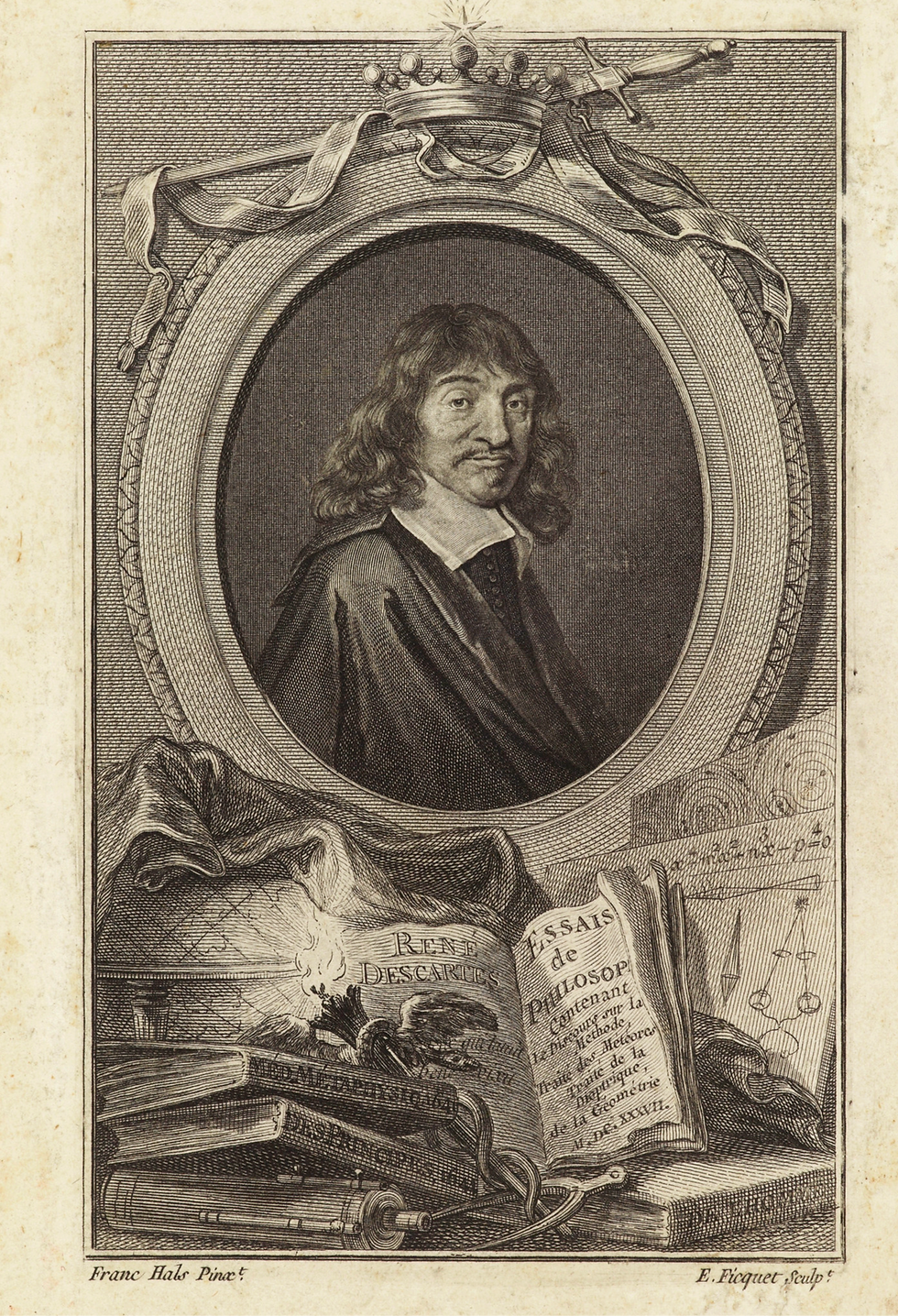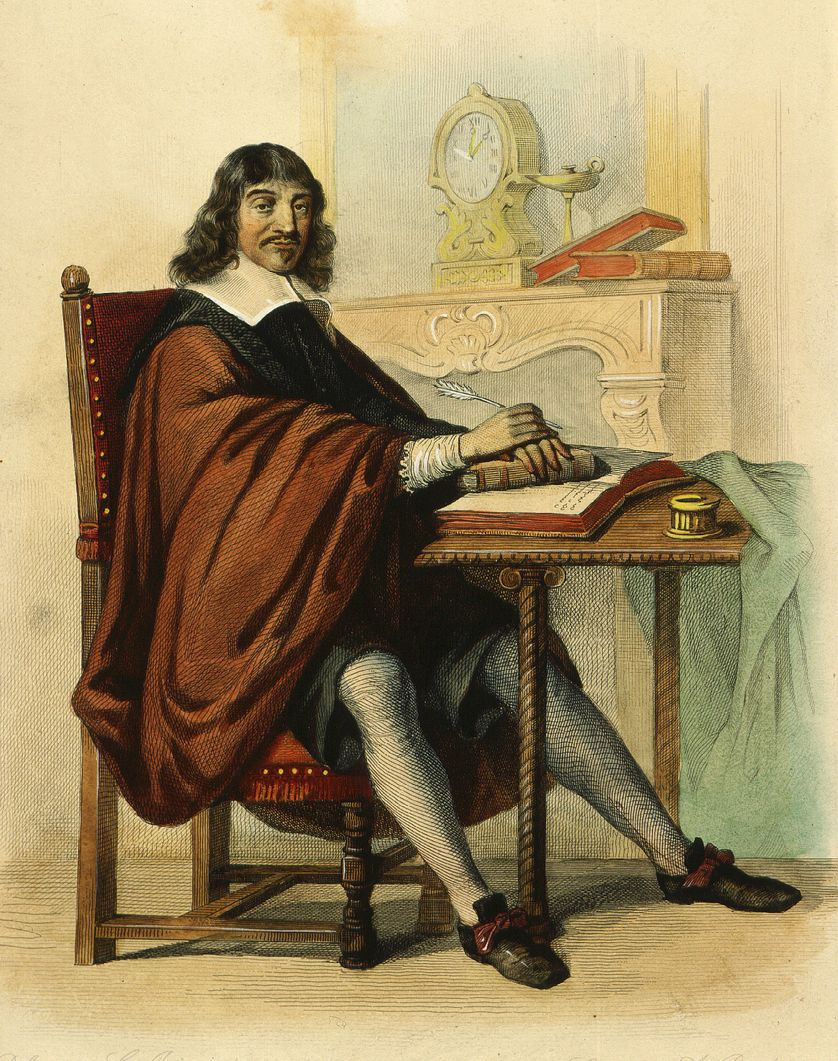

Irène de Palacio
4 déc. 2025



Dernière mise à jour : 1 mai 2023

Portrait de René Descartes,
by Hals Frans (1580-1666)
Extract from:
(1867)
P239
"The great Descartes, the pollen of whose thoughts, borne on all the breezes of inquiry, fertilized the philos ophy of Europe for two centuries, is a fine example of one who, in spite of brilliant accomplishments, extended reputation , strong affections, and courteous manners, was made essentially a solitary man by his intense devotion to the discovery of truth .
He repudiated traditional authority and prejudice, and with a sublime force and heroism of soul threw himself back on common sense and a sceptical openness and freedom of search for the reality of things. There are four ways in which most persons arrive at their various degrees of wisdom :
There have been, Descartes says, in all ages, great minds who have tried to find a fifth road to wisdom, incomparably higher and surer than the other four, namely, the search of first causes and true principles from which may be deduced the reasons of all that can be known. On this fifth road few mightier travellers than he have ever trod. Those who have passed him since were in debted to his guidance. He dared to strip off all past beliefs that he might not be encumbered or misled.
Regarding “the supreme good as nothing more than the knowledge of truth through its first causes”, he allowed nothing to interfere with his pursuit of it. But his kind temper, good taste and prudence did not disarm the fears and foes awakened by the boldness of his speculations. Stratagems and dangers surrounded him.
Cousin says, “After having run round the world much, studying men on a thousand occasions, on the battle-field, and at court, he concluded that he must live a recluse. He became a hermit in Holland.”
Eight years later he writes.
At another time, he says,

René Descartes (1596-1650), par C. Jacquand
Gianni Dagli Orti / The Art Archive
There is no reason to doubt the sincerity of this declaration ; yet there is another side to the truth. For when Queen Christina paid him honoring attentions, and invited him to her court at Stockholm, he went thither and occupied an academic post. His first passion was the pursuit of truth ; his second, a love of the esteem of his fellow men. His own frank words give a pleasing proof of this.
There was no misanthropic ingredient in his isolation. Yet, once or twice, a little soreness, a little petulance at the neglect of the public, at the lack of the cooperation he needed, escapes him.
But if, contrary to his own opinion, the ambition of Descartes in relation to society and mankind was superior to his fruition, so that some dissatisfaction resulted, it did not sour or exasperate him . On the whole, he kept his moral equipoise well and sweetly. He has himself indicated his three great re serves of happiness.
First, his employment itself.
Second, intercourse with the highest minds of all times and countries.
And thirdly, the subjection of his wishes to his condition.
Source :




